Insights into the forces shaping our industry.
DistribuTECH 2024
Industry Commentary
DistribuTECH 2024 in Orlando, from our perspective, was a hugely successful conference. Over 17,000 people attended the event with over 600 exhibitors showcasing their products and solutions. There was general enthusiasm relative to the utility market outlook for the balance of 2024 and into 2025.
We saw solutions focused on grid resiliency and the need to address the aging infrastructure. As always, concerns were raised about the regulatory process. We saw countless offerings for data collection, both on the hardware and software side including where to store the data, and the importance of using data to drive monetized growth.
Artificial Intelligence was a buzzword. Candidly, many don’t yet understand what AI means in the context of the utility industry. Tech companies are working to figure out the utility industry and how to partner with utilities and hardware / software vendors. The need exists to dive deep into cybersecurity in the power / utility industry for hardware, software, and communications protocols. All recognize the threats, but we heard many different opinions / approaches on how to move forward. Some manufacturers shared they are launching their own internal cyber teams / initiatives over the next 6+ months while others shared their approach would be to partner with third party cyber firms / developers. Cyber testing and compliance and program management will be the key drivers.
We heard from manufacturers on two key areas of need and both are areas that they’re currently struggling with: 1) Adding highly technical field service personnel and 2) Adding “the best of the best” (as many described it to us) applications engineers. For the past several years, we’ve been tasked with finding technically minded and savvy salespeople. For the first time, we’ve heard that manufacturers now want to now pair “top” engineers with their salespeople. They told us they want much more engineering focus relative to sales on the technical capabilities of product and applications. Much more than what sales engineers have been previously asked / expected to do. We heard that conversations are becoming far more advanced, so the need for “top” engineers to be a part of the sales process is an immediate focus.
DistribuTECH 2024 was enjoyable and highly insightful. The power generation, transmission, and distribution markets will continue to realize growth. Collaboration will be global and a focus on renewable energy / sustainability will be at the forefront. Products will continue to evolve with a commitment to intelligent reliable products to address grid reliability, data collection and storage, and cyber threat concerns.
It’s an exciting time to be in the industry! Each of the meetings that we had at DistribuTECH were highly productive. We look forward to strengthening our relationships with our current clients and providing value to our new partners. If we did not have the opportunity to meet during the conference, no worries…Let’s schedule time to talk!
